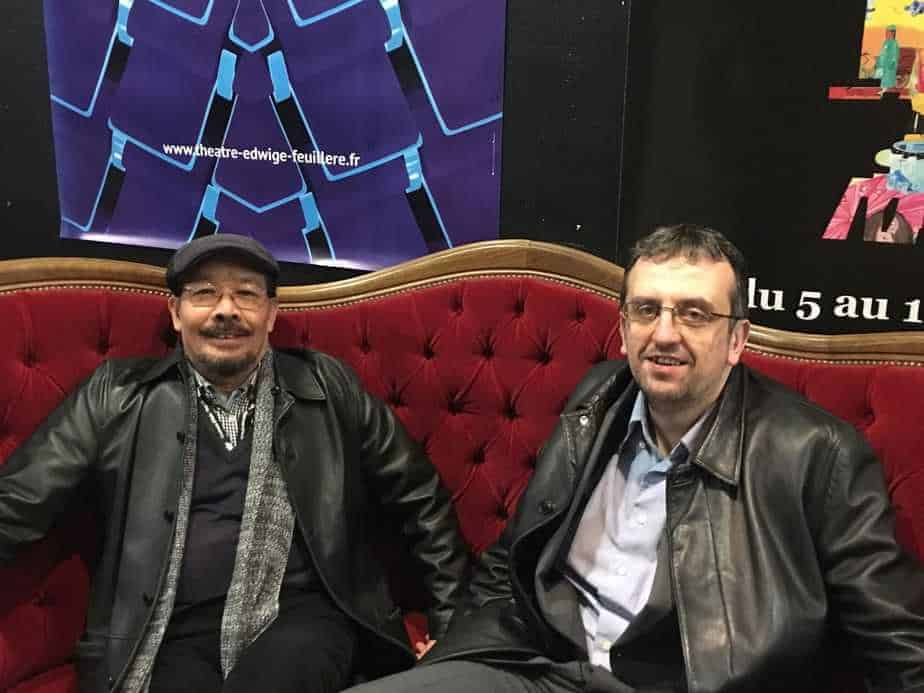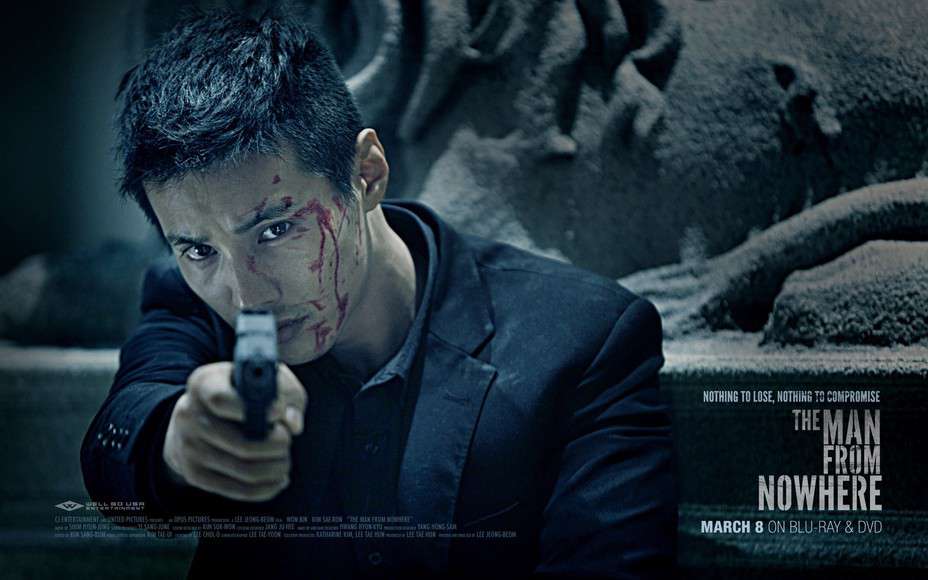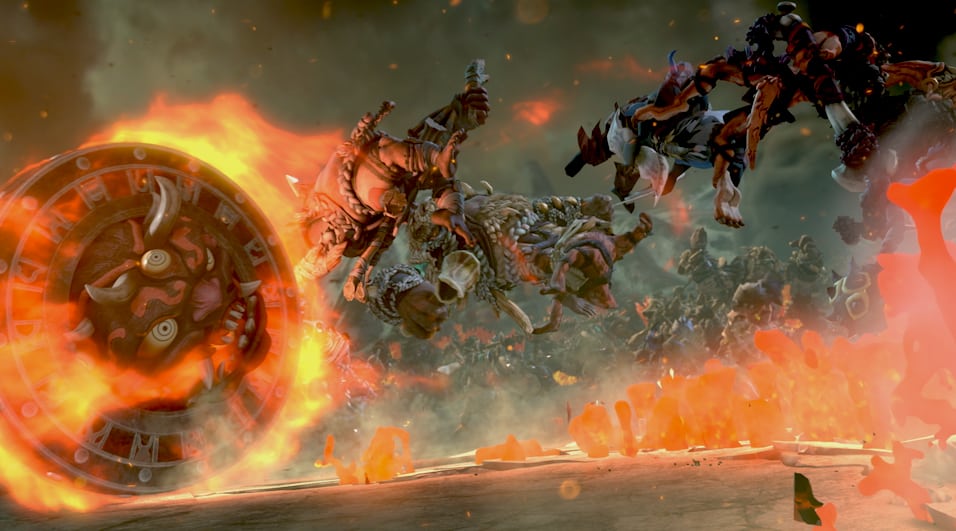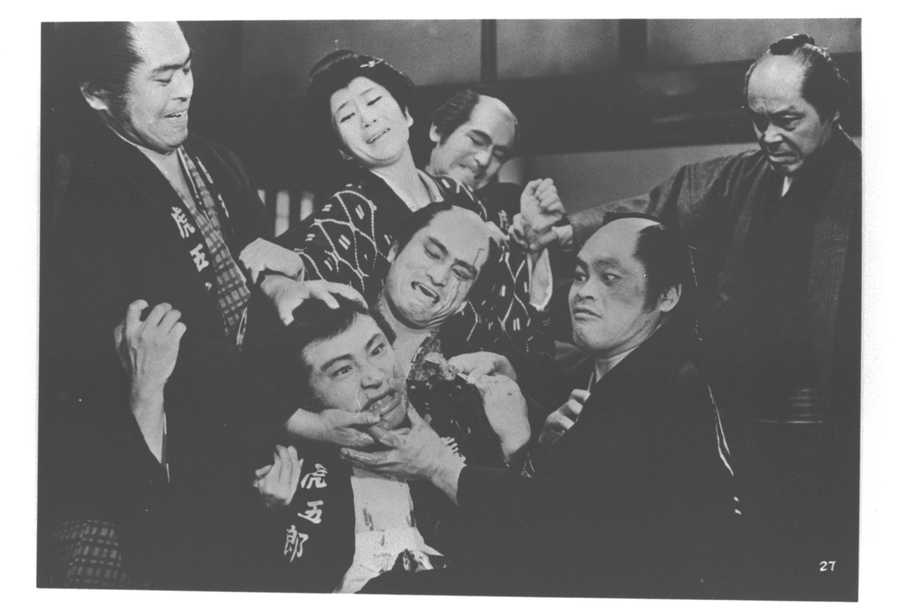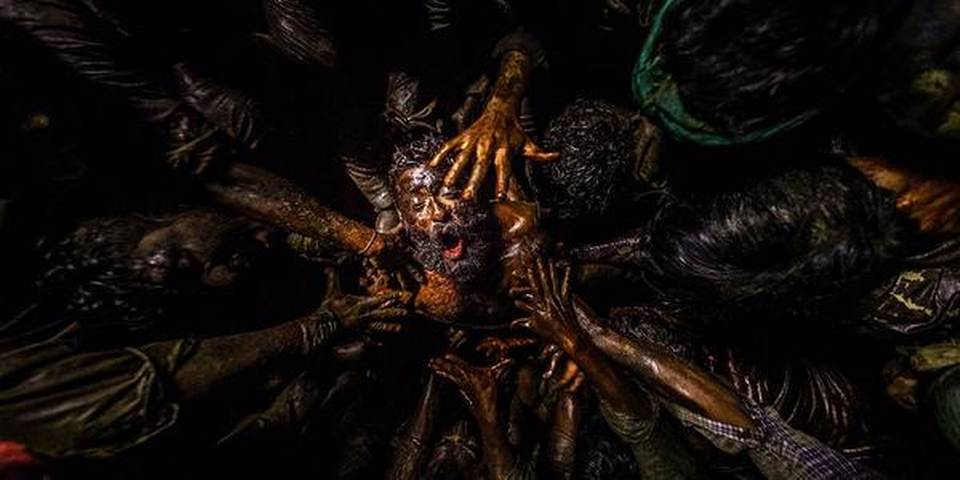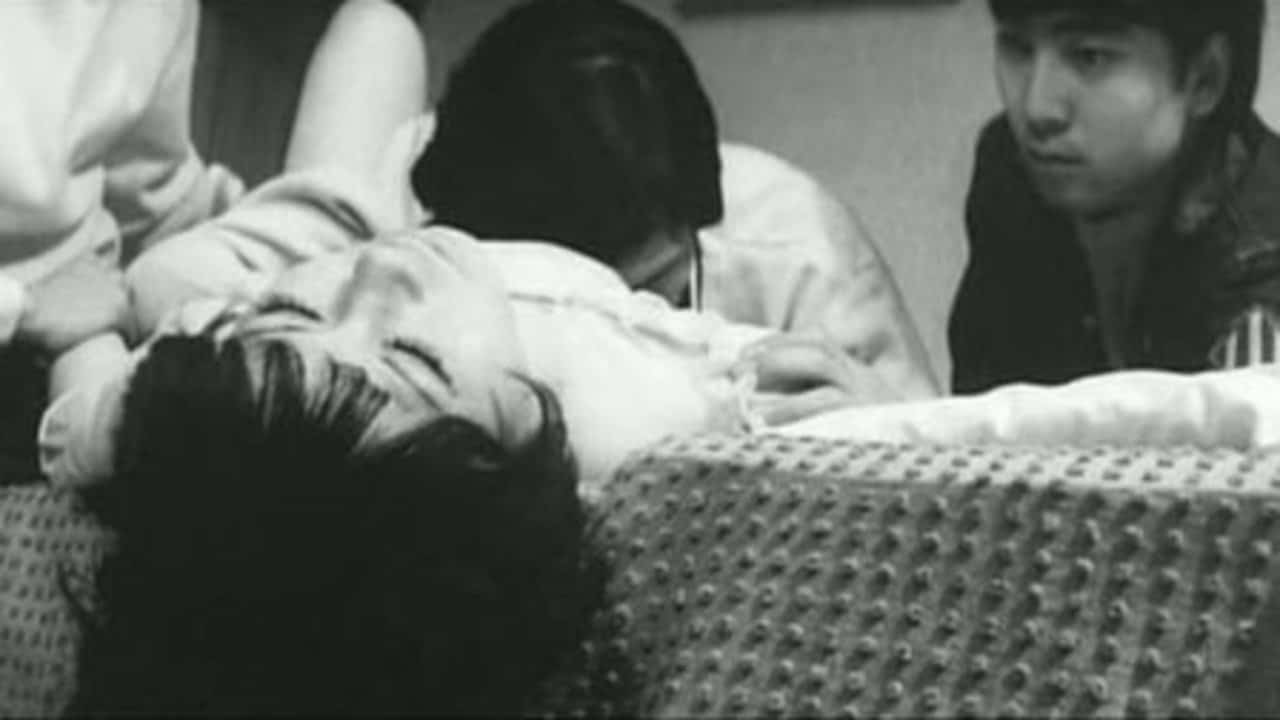Freddie Wong graduated from Conservatoire Libre du cinema français in 1978. He returned to Hong Kong in 1979 and became a programmer for the Hong Kong International Film Festival (HKIFF) until 1983. He then entered the film industry, worked as film programme manager at the Hong Kong Arts Centre, became the president of the Hong Kong Film Critics Society and a consultant. In May 2009, Wong was made a Chevalier de l'Ordre des Arts et des Lettres by the French Ministry of Culture and Communication. In 2010, Wong directed his first film, adapting noted author Liu Yi-chang's The Drunkard. He is curently developing his second feature, The Gamblers of Hong Kong.
On the occasion of his selection as President of the NETPAC Jury at the 25th Vesoul International Film Festival of Asian Cinemas, we speak with him about his life, career, The Drunkard, his new film, Wong Kar Wai, the situation of the Hong Kong Film Industry, and other topics
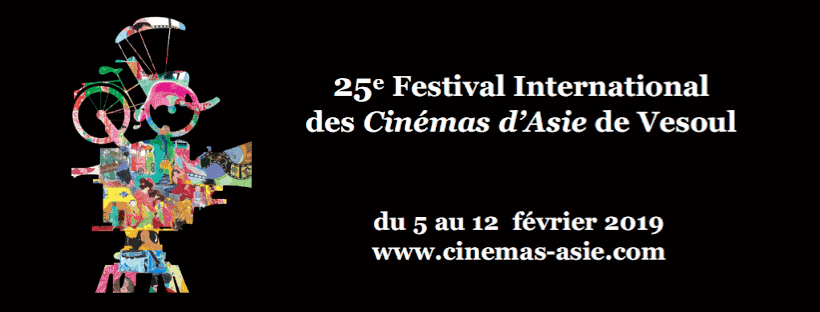
Transcription by Jamie Cansdale, Adriana Rosati and Panos Kotzathanasis
You studied at the Conservatoire Libre du Cinéma Français and then you got the Chevalier de l'Ordes des Artes et des Lettres, how did this all come about?
Actually, when I was very young, I tried to set up some kind of film club in Hong Kong. At that time I didn't go to university, I started working when I was 18. So I tried to learn French, and at the same time, I was very interested in cinema after I graduated from high school – I was especially interested in French cinema so that's why I tried to learn French. After working a few years in a hospital, somehow I founded a ciné club which is called Phoenix Ciné Club and I was the first Chairman or President, and we tried to programme films. At that time, there was no film festival, and we wanted to see more movies, so we set up a ciné club. I started French with Alliance Française, and the director there, Mr. Emile Mantica, tried to help us with the ciné club to get the French movies, so we had a good relationship. Eventually, I learned about the scholarship that they would give to the students in Hong Kong. Usually, they would give the scholarships to graduates of Hong Kong University or Chinese universities in Hong Kong. But since I've learned French and eventually with the help of the cultural attaché, Mr Jean-Michel Leclercq, who was also a member of the Phoenix Ciné Club because he loved cinema – I got a scholarship studying in France, in Paris, and that is the school I went in.
The Chevalier came much later. After my study in Paris, I came back to Hong Kong, and immediately I started work on the Hong Kong International Film Festival as a programmer. We had this kind of relationship with the French consulate and of course I tried to programme more films from other countries. I was especially interested in French cinema, had a lot of collaboration with them, and then later I switched and worked for the Hong Kong Arts Centre, then later for the Broadway Cinématheque, and sometimes I had programmes about French cinema. Maybe because of that, they acknowledged my contribution to French cinema. After many years, I got the Chevalier.
Can you tell me a bit about the new script you?
Well, I think you have seen my first film and you probably also know it was adapted from the famous novel by Liu Yi-Chang. When my first film ‘The Drunkard' came out, I remember I had a kind of a forum with university students to talk about my film, and I mentioned about the idea of a second episode. It is not exactly a sequel because regarding ‘The Drunkard' the novel, I made the film adaptation, and then I had the idea of trying to have one of the main characters, Lulu – the dance-hall girl – to be in the second film. I talked to her, I said “I want you in my second film after twenty years” because ‘The Drunkard' is set in the sixties, and so after twenty years is the late eighties; she will be the second actress and if you remember the small brother in the film who appears briefly and asks the writer “why didn't you take my sister ,why didn't you take her to the hotel?” … So I imagine this brother grow up, and after twenty years he would be maybe in the late twenties, and he will be the main actor in my script.
At the time the movie will take place, what was most important in Hong Kong was what happened in Beijing, on the 4th of June, the Tiananmen massacre…that happened in the late eighties. So I have this near the end of the film, I have a little bit of this in the background. So when this Tiananmen massacre happened, the people of Hong Kong were very scared, and they were very worried about the fact that Hong Kong is being handed over to mainland China, which is a completely different regime. So many people are worried, many people try to emigrate; I think the second emigration the people now call The Second Wave. The First Wave took place around 1967, during the Cultural Revolution. It began in 1966 and during the second year in Hong Kong there was rioting, you know the left wing trying to have a kind of… they had bombs. Some were real bombs some were fake bombs, trying to kill the policemen because they were British –

There was a film last year about that, No 1 Chung Ying Street. Derek Chiu directed the film about this period…
Yes this period. So that is the first time when a lot of people in Hong Kong actually tried to emigrate to countries like Canada, Australia, UK, and the USA because they're English-speaking countries, and Hong Kong is English-speaking so it would be much easier to adapt in their new life, so that is the first round of immigration. The second round is after 1989, the Tiananmen massacre, because they were facing an unknown future: the handover in 1997. So many families, they also immigrated to Canada, Australia, Singapore. So my main focus in the film is all Hong Kong people facing the unknown future of 1997, everyone is a gambler.
A gambler?
Because you don't know what happens. You don't know the outcome. So those who stay in Hong Kong hoping the future will be better, they gamble. It's a kind of unknown destiny. Everyone who are facing this unknown destiny, they gamble. So, okay, the other people who immigrate, they also gamble. Because if you go to a foreign country, you don't know whether the life will be better than in Hong Kong.
So that's why later – at first it's called ‘The Gambler' and then later I change the title to ‘The Gamblers of Hong Kong' – actually everyone is a gambler. So of course in the film there is mention of some gambling, because the Chinese people like gambling, but every Hong Kong citizen is forced to gamble when they face the 1997 unknown destiny.
Why did you decide to adapt Liu Yi-chang's novel? What drew you to adapt it into a movie?
Liu Yi-chang is very famous, he was since I was a kid. I was a primary student in the 60s and I already knew the name of Liu Yi-chang, I actually read some of his novels that were serialized in the newspaper. Liu Yi-chang was always very prolific, he wrote a lot of novels. You know how he wrote? He could write for ten newspapers at the same time. So everyday maybe about 200 or 300 words. So, for example, novel no. 1 he'd write 200 words, and then for novel no. 2, novel no. 3, every day, he could write ten novels at the same time. And then the next day he would continue.

Second part of everything, for ten novels?
Yeah yeah. Actually ‘The Drunkard' was written like that. Every day, maybe 300 hundred words, then the other days he'd continue ‘The Drunkard'. When the whole novel was finished it could be made into a book. He published the book in the early sixties. So I knew about his name through my parents or my relatives, “Liu Yi-chang is a very good writer”. In those years in Hong Kong you didn't have other meaningful source of entertainment, most of the people who were not rich were just reading newspapers, and reading the novel. At the time, I already knew about Liu Yi-chang but I think I really read the book when I graduated high school. I liked it but I was not crazy about it; later, when I went abroad to Paris to study, when I was homesick or needed to read novels in Chinese, (you couldn't get them in France, so I had previously sent some books from Hong Kong) I reread the novel again and I really loved it. But I still didn't come up with the idea to make it into a film because everybody said it was difficult, it was a stream of consciousness, they say it's a…
A bit abstract.
Yes, they said it's impossible to make into a film. In 1999 however, I produced a film with Nelson Yu – Yu Lik-wai – he was a first-time director at the time, I produced his film, and I managed to get it into Cannes…actually into competition. Yeah, yeah. At first it was in Un Certain Regard, but then later there was a film maybe get kicked out maybe a Chinese film I don't know, so our film got promoted to official competition.
Which film was that?
It's called ‘Love Will Tear Us Apart', with Tony Leung Ka Fai. So I invested money in that film to have it finished. Luckily, I got the money back; I mean I didn't make any money but at least I got my investment money back and I got into Cannes, so I said to myself “maybe I could do some film,” and that's why I came up with this idea, to make ‘The Drunkard' into a movie. But at that time I was actually thinking of producing it, because I had never directed any film, so I thought maybe I could produce a film; and…you know Allen Fong, who made ‘Father and Son'?
Yes, I know him.
At first I wanted him to be the director, and that's why when I talked to Mr Liu for the screen rights to make it into a movie, actually I went there with Allen Fong together, and Mr Liu said “ah okay”. Later it seemed very difficult to get investment for this kind of literature or literary work, and people don't even know how to pronounce
Liu Yi-chang name, because in Chinese this word is quite a different, difficult word. But anyway, after a few years I had a script ready and then… but I have to mention Wong Kar-wai, because he knew I got the copyright for making the movie, and then his producer came to speak to me; they knew I had the screen rights. Because I signed the contract with Mr. Liu so I had to make sure the adaptation is loyal to the book. And you know Wong Kar-wai probably won't do any loyal adaptation!
Was he present? The author, when you were shooting, was he there during the shooting? Liu Yi-chang was there?
Yeah, yeah. He was very supportive of the film. So anyway, I requested to be the associate producer so I could make sure that the adaptation was satisfactory to Mr. Liu, but of course Wong Kar-wai wouldn't do that and eventually he came up with ‘2046'. A lot of things in ‘2046' actually come from ‘The Drunkard'.

I really thought that you took some things from ‘2046'…
No –
…so it was the other way around!
I actually was the victim, you know. I think he doesn't respect screen rights, and so when the film came out, when the critics in Hong Kong wrote about ‘2046' everyone mentioned ‘The Drunkard', the novel you know? Because many things actually came up from the book, but I had the screen rights of the book. So then, what happened when I approached directors like Fruit Chan and Larry Lau, because I thought they could make a good film out of this novel, what they said was “ah Wong Kar-wai has, you know, made the screen adaptation already,” so nobody wanted to make it. Eventually I decided to make it myself! To direct it myself!
That's a good story actually! In the film, the Writer tries to produce works of quality, but in order to make money he has to change and has to be more commercial. So do you think that this is the case still now? That art of quality does not make money?
It's always like that, it's always like that. And actually Mr. Liu is in the literary circle, but I feel myself like Mr Liu, because it's difficult to make a really personal and artistic literary adaptation of this novel. I mean, if you really want to make commercial films I can get the investment very easy. But if you want to make a more serious and artistic movie, one that has something to say, then it's difficult. I think the situation is similar today. Even when I finished making ‘The Drunkard' and the film went to many film festivals, like twenty film festivals, I couldn't get the money back because maybe the film was not good enough. But then, you know what happened? The first day when our official DVD came out, the same day I remember because it was the Easter holiday, I went to China and the pirated DVD came out at the same time!
Ah really?
Yeah our official DVD in Hong Kong came out the first day of the Easter holiday. And that day, I went out to Shenzhen and there were already pirate DVDs. So the situation is just like about the novel, you publish a novel and then in those years…when you publish a novel in Hong Kong, pirated copies will appear in South East Asia! In Malaysia, Singapore, Indonesia, anywhere where there are Chinese. In the film, the writer complained about this. But it's actually the same with movies. And I found out that it is also on the internet. I only sold the copyright to China for the internet for little money, you know not much money. Now the loyalty expired with that company. And you know the iQiyi? The Chinese company that…iQiyi is very famous, it's a company from the mainland that try to buy things and sell films on their website. But they sold my films without paying me anything.
Really, just like that?
Just like that.
Can you go to court and sue them?
No no, it's very difficult. If you maybe send a letter to them maybe from a lawyer, you know, immediately they just pull out. They won't give you any money for that. But my dilemma is I want more people to see my film!
So it's kinda good…
Somehow, on the internet I once saw my film subtitled in Vietnamese!
Oh really!!
But I never sold my film to this country. But on the website you see subtitling in Vietnamese.

Okay. So, in the film there is this scene where the protagonist of the film tries to write a script and then another guy steals the script and makes another movie without asking the original- so do you think this is the case with the movie industry, that everybody steals from another?
It happens all the time. Of course sometimes I try to help out some friends and (I don't want to mention any particular director because they are good friends) the director wanted to make an adaptation of a Japanese novel, and I happened to have a Chinese translator and of course they didn't buy the copyrights, they just wanted to adapt it to Hong Kong, try to get the idea, and so I wrote the synopsis for her and I never got any credit you know? It's like that; even for some films that I was the assistant director and then I also rewrote the script and discussed about the script, I never got any credit for the script.
No?
No, no money, no credit.
So you kind of see yourself in the protagonist of ‘The Drunkard'.
Oh yes of course, yes. It is not uncommon for people to steal your idea
Alright, so…can you tell me a bit about your cooperation with Henry Chung in the film?
I've known Henry Chung since we started our filmmaking career, at least 30 years before, since I was an assistant director to Alain Corneau, on a film called ‘Série Noire' (1979) and he was also working (in films). He's always been a consultant for buying video cameras and equipment. He likes that kind of technology and he always got the best and then he would sell them. Sometimes I bought from him. That is why when I started to work on my film I asked him to be my cameraman.
Okay. So in the movie how did you cooperate with him?
He was the first to tell me about the Red Camera, which is the less expensive 4K resolution, and we shot my film with that. At the time, DCP was not as popular as today, it was still the transition period, we still had film copy. So, although we shot in 4K and I tried to do the editing in digital, then I transferred it in film again, so we also had a film negative. I did that in Taiwan, so I have both the DCP and the 35mm copy.
I told Henry that I want a kind of low-key photography because I want to express the kind of stream of consciousness that the guy is drawn to sometimes, which comes from a dream, so I wanted to do more soft focus and sometimes out-of-focus.
Alright. So, can you tell me a bit about John Chang, why did you chose him for the part and how you cooperated with him in the movie?
Well it had something to do with the language, because. we cannot tell the difference, but the writer and also many writers who actually come to Hong Kong from Shanghai, they speak a different language, they speak Mandarin only maybe with a Shanghai dialect. So when they come to Hong Kong they have to try to learn to speak Cantonese. And even though, like Mr Liu Yi-chang the author he can speak Cantonese but with a very strong Mandarin accent, so I want to have this kind of reality, you know? I try to find someone who is actually Mandarin speaking but who can also speak Cantonese with accent. It had to be someone not from Hong Kong obviously, because in Hong Kong most of the people who are acting speak Cantonese. At that time, I worked with Tony Au in Paris, in his first film as a director, “The Last Affair”, and John Chang was also on that film, and Norman Chan was the producer of the film. When Norman knew that I was looking desperately for someone to play Mr. Liu in The Drunkard, he suggested John Chang to me, and when the latter passed through Hong Kong, he arranged me to meet John at the airport and I gave him my script and the novel too. After that he read the script and he was very interested in the role and eventually he worked with me.
Was it difficult for the actors to adapt to the script? As it sometimes mixes reality, fantasy, past and present.
I think the most difficult part for the main actor was that he had to perform and speak in Cantonese; he had to memorise the dialogue in Cantonese. John can speak Cantonese, but when it comes to acting you have to memorise your lines of dialogue. If the lines were in Cantonese I would find someone to record the dialogues in Cantonese and I would send them to John via email
Was there the same problem of language and accent for the female actresses?
Lulu (Joman Chiang) is actually Cantonese, she grew up in Hong Kong while the old Mrs Lei is Mandarin from Sichuan. It was actually hard to find an actress of that age, then once I was talking with a friend and he suggested to try to get Wei Wei. She is a very famous actress, she is the protagonist of Mu Fei's “Spring in a Small Town” (1948). She is great, I like her very much.

What is the situation with Hong Kong cinema at the moment?
To begin answering that question, we have to go back to the handover to China. Before that, Hong Kong produced at least 100 films per year. During the Golden Era, more than 300, almost a film a day. But after the handover, the number of productions dropped immediately, and gradually it reached less than 50. Furthermore, the more established directors moved to China because the money is there. Apart from these directors, the less celebrated also started working in China. You know why? Because they can get money easily to make films. A lot of them actually work in TV series, where there are a lot of episodes like 30 or 50 and they can make a lot of money from that. It is easier than trying to make a movie. For the past 20 years or so, many films that were made from Hong Kong directors like Ann Hui and Tsui Hark, even if they have a HK story and background, they have Chinese money involved, Chinese money is always there.
On the other hand, there is another generation of young directors who can make films with a lower budget and they can be very young, like in their early 20s. They are supported by local Government funding, like the First Feature Film Initiative programme, that gives them money to shoot their first movie. Many of those films are quite decent. There are also some young filmmakers who can make independent documentaries mostly, because they have something to say. The digital technology has made that much easier, because now you can do the editing with a computer. So it is not that difficult to make a film that will eventually be turned into a DCP and shown in the theaters. And even if it does not reach cinemas, there are other ways to show these films to people who are concerned about political subjects.
Regarding the censorship in Hong Kong, as far as the government is concerned, they do not censor at all, even if it is a very political film, like for the events in 1967, it will still be released in theaters, even for a few weeks. On the other hand, a serious problem has risen recently, that people have started to censor themselves, because they think that the film may offend the communist regime, and they try to stay away from it, and this is a problem for me. But I am not pessimistic about the future of filmmaking in Hong Kong. From the government's perspective, even if there are not a lot of money in Hong Kong to be invested in film, they say that one can go to China and shoot mainstream films. But this regards the industry and it is not my personal concern, my concern is for people to make more creative and personal films, which can be seen, maybe not in China, but all over the world,, through festivals, and maybe even get some small release in some countries.


